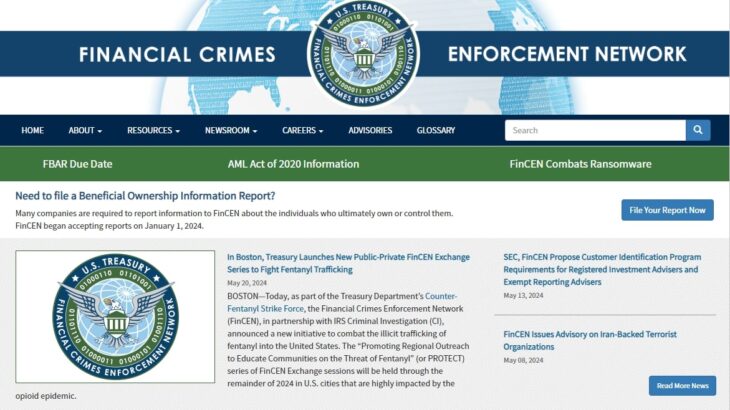As more customers shop online every year, authorities must continuously adapt policies to detect illegal activity like money laundering. Commonly called Anti-Money Laundering or AML standards, these laws aim to prevent criminal behavior such as funding terrorism.
AML compliance is a global issue, with standards regularly updated to stay ahead of criminal schemes. For business owners, keeping up with evolving regulations grows more important over time.
A great solution is to use a proper transaction monitoring platform as it can spot fraud on time and prevent you from dealing with bigger issues. You can learn more about this option by checking SEON.
This article will provide more details about emerging AML protocols and how they impact e-commerce.
What Are AML Regulations?

Anti-Money Laundering (AML) laws aim to stop people from disguising illegally obtained funds as legitimate income. Often called “money laundering,” this process hurts the integrity of financial systems. Regulators from different countries and organizations try to enforce these standards.
The rules look to prevent criminals from hiding profits tied to serious crimes like drug trafficking or weapons dealing. By requiring disclosure on large transactions and limiting anonymous money moves, the standards make laundering more difficult. Following AML is important for many industries where dirty cash could end up, whether that’s banks, real estate, or online stores.
Important Groups for AML Rules
Financial Action Task Force (FATF)

The FATF brings together governments globally to establish consistent standards against money laundering and terrorism financing. Providing a shared framework, it helps make sure different countries stay on the same page fighting crimes with money ties.
European Union (EU)
Within the EU, directives like the 6AMLD lay out strict obligations for member nations. These guidelines are revisited regularly to keep up with changing risks. Coordinating requirements cross-borders simplifies compliance for companies in multiple EU countries.
United States Financial Crimes Enforcement Network (FinCEN)

In the US, FinCEN is in charge of upholding AML regulations. It requires businesses to implement solid programs screening customers for risk, performing thorough ID checks, and flagging any suspicious monetary actions. These programs aim to curb dirty money stateside.
How These Rules Impact Online Stores
Requirements for Stores

Webshops must follow certain protocols to detect and prevent laundering scams. This means:
- Evaluating risks like what suspicious stuff could show up.
- Double-checking customers’ IDs and transaction histories.
- Tracking payments for any strange activities.
- Tipping off authorities about questionable movements.
More Detailed Screenings
AML standards tell stores to verify spenders’ IDs in full, especially for big-ticket buys. Called “knowing your customer,” it involves gathering standard info like names, addresses, and ID docs.
Bigger Workload Behind the Scenes
Ensuring lawfulness takes labor and funding. Stores need technologies to spot abnormal transactions automatically plus employees who know compliance procedures backwards and forwards. All this paperwork and software comes at a cost sadly.
The Consequences of Non-Compliance
Failing to follow AML standards can result in serious repercussions for online stores. Regulatory agencies may levy substantial financial penalties for any violations.
There is also a risk of reputational damage, as a lack of compliance could undermine consumer trust and confidence in a brand.
Additionally, operators and employees may potentially face legal ramifications such as civil or even criminal charges in some cases.
Steps to Ensure Compliance

To follow all the regulations properly, stores will need to:
- Create a solid plan covering how to screen customers, watch transactions, report oddballs, and assess risk levels over time. Careful organization makes compliance simple.
- Train employees on the ropes of AML standards regularly. Regulations and warning signs shift fast, so staff must know what’s up as time rolls on.
- Leverage advanced programs online. In an article explained by Bill, software for overseeing payments, comparing IDs quickly, and number crunching lift efficiency and precision in flagging strange behavior. Automation aids compliance when done right.
Technology May Alleviate Burdens of Increasing Regulation
As expectations around anti-money laundering protocols continue to intensify, stakeholders have expressed hope that artificial intelligence can help address growing compliance challenges.
Machine learning models with the power to analyze vast amounts of transaction data efficiently may be able to identify suspicious patterns that intensive manual review may miss.
If implemented judiciously with appropriate oversight, this developing approach could allow professionals to focus more intensively on high-risk cases. As technical solutions evolve, maintaining vigilance against misuse will remain paramount.
The Growing Popularity of Digital Currency

As more consumers embrace the convenience of paying with cryptocurrency online, businesses have responded by expanding digital options. However, regulators and compliance officers well know this uptick also brings difficulties, as the anonymity inherent in many cryptocurrencies complicates efforts to track financial flows. With bad actors now having a new vehicle, maintaining visibility while supporting innovation will demand creative solutions.
Global Variations
As technology shrinks our world, businesses increasingly operate across diverse jurisdictions – each with its own standards around anti-money laundering.
While complying with local requirements is important, the differing nature of regulations between regions presents a significant management challenge.
Build Trust With Customers Through Compliance
Be Open and Honest
Letting customers know about the steps taken to prevent illicit activity can build good faith between businesses and those they serve. Providing transparency on compliance policies assures people they are protected from fraud when conducting transactions.
Focus on Convenience
Implementing verification processes that are streamlined but still secure upholds an important responsibility while keeping the customer experience pleasant. Using technology to smoothly confirm identities without delay means cooperation proceeds effectively.
Last Words
Having to follow all these different money laundering laws around the world is a big deal for online stores.
But keeping customers safe is crucial for keeping the business thriving in the long run.
For online stores looking to do business worldwide, it’s key to adjust how you do things to follow each area’s rules on staying legit. That way, your store can keep running easily no matter where shoppers are located. Also, keeping up with what’s changing makes the process of shifting things around way more easier in the long terms.
